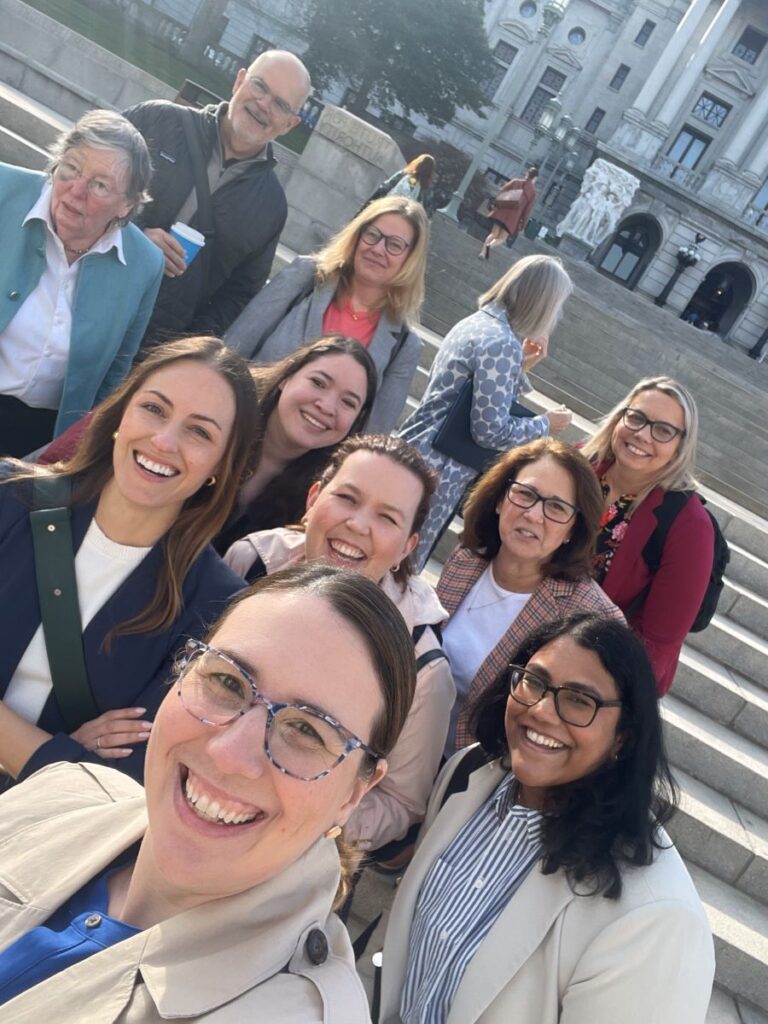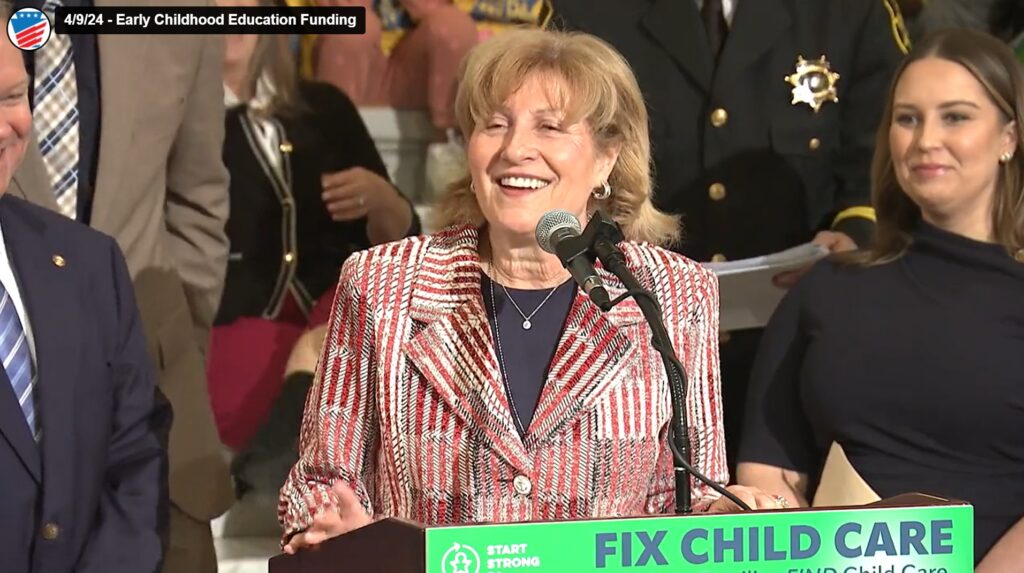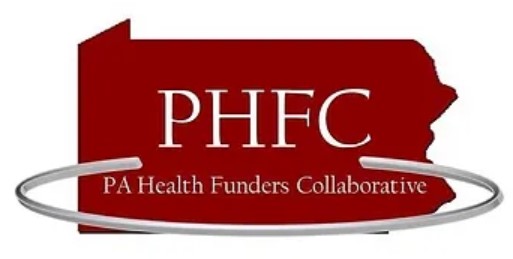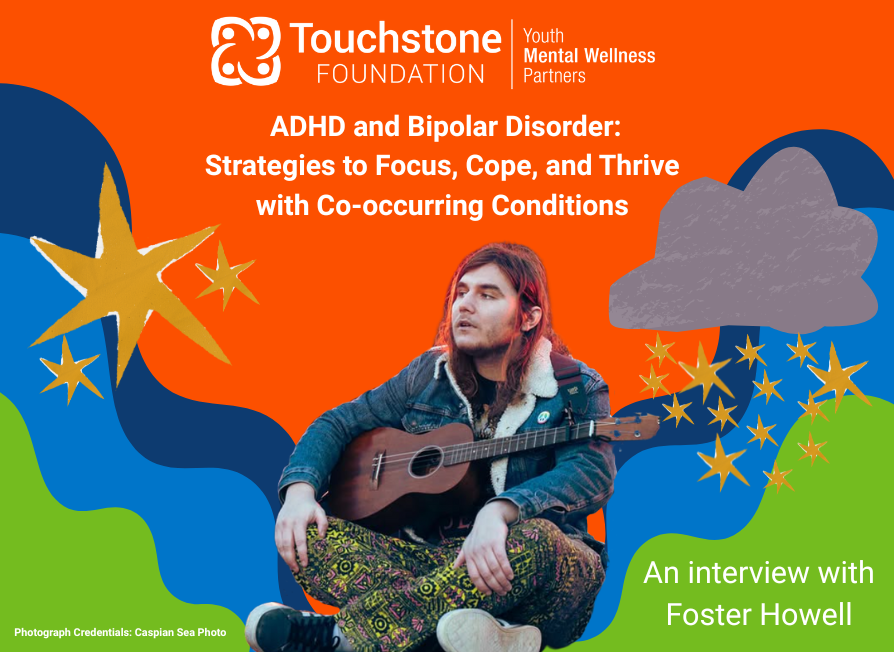
Touchstone Foundation staff Anna Kennedy and Shanece Bowman joined colleagues from health foundations across Pennsylvania in Harrisburg on April 9th to discuss policy and systems change opportunities to advance equity in health. Working collaboratively across systems and sectors and in partnership with other foundations and nonprofit organizations to improve health and well-being is a guiding principle shared by Touchstone Foundation and the Pennsylvania Health Funders Collaborative (PHFC).
Here is the PHFC 2024 Policy Agenda
- Address the workforce shortages in Pennsylvania across the continuum of care
- Advance maternal and child health policy recommendations to sustain a perinatal behavioral health access and consultation program, build a diverse perinatal workforce, and increase and streamline enrollment in WIC
- Develop a full behavioral health crisis continuum to support 988
- Streamline Medical Assistance renewals through the Ex Parte redetermination process
- Support Medical Assistance flexibility and expansion, including affordable housing, expansion of continuous eligibility for children, youth mental health services and supports, re-entry prison benefits, and restored dental benefits for adults
We thank the administration officials and legislators who met with PHFC members to discuss critical health equity issues including maternal and perinatal health and well-being, health and human services workforce development, behavioral health, and health insurance coverage.
At Touchstone Foundation: Youth Mental Wellness Partners we are advocating for youth mental wellness, and with PHFC, we focused our conversations on our health workforce needs, specifically licensing support for mental health providers. One exciting update from our meeting with Sen. Stefano’s staff is that we now have legislation to support pre-LPC counselors having a license while earning hours. We still need paid preceptorships, modernizing the licensure process in Pennsylvania, and much more. But this is an exciting start to building our mental health workforce.
We attended the Early Childhood Education Co-Chairs’ press conference about investments in early learning teacher recruitments and retention efforts. We also attended several other press conferences at the Capitol Rotunda throughout the day.
We met with the following representatives, senators, and staff:
- Rep. Schlossberg, Co-Chair of the Mental Health Caucus
- Sen. Judy Ward, Chair of Aging & Youth and Vice Chair of Health & Human Services committees
- Rep. Frankel, Chair of the House Health Committee
- Akbar Hossain, Secretary of Policy and Planning, Office of Governor Josh Shapiro and Meghna Patel, Deputy Secretary
- Co-Chairs of the Black Maternal Health Caucus, Rep. Mayes, Rep. Curry, and Rep. Cephas
- Sen. Stefano’s Staff, Chair of Professional Licensure Committee
Did you know that Pennsylvania’s health care workforce is one of the most severe in the US?
- Worst Registered Nurse (RN) shortfall in the US with an additional 20,345 RNs needed.
- 3rd worst mental health professional shortage in the US with 6,330 vacancies.
- Nursing support staff shortage of 273,711 in Pennsylvania.
We asked our elected officials to consider these workforce solutions in healthcare —
- Increase the number of students by providing grants to healthcare training schools to increase enrollment and clinical training sites for all healthcare workforce shortage positions, including educational remediation programs so students can excel in these schools and in the licensure/ certification exams.
- Increase the supply of Certified Nursing Assistants (CNAs), Licensed Professional Nurses (LPNs), Doulas, and Community Health Workers (CHWs) by providing adequate reimbursement for these positions through state-funded programs and the PA Insurance Department.
- Ensure network adequacy and reimbursement for Doulas, CHWs, mobile mental health crisis teams, direct care workers, mental health stabilization centers, mental health and substance abuse professionals, school nurses, and primary health providers.
- Shorten, condense, and modernize the educational, licensure, and certification period and procedures to produce more healthcare staff in a shorter period.
- Require commercial and Medical Assistance behavioral health Managed Care Organizations that have inadequate behavioral health provider networks to grow their network by:
- Hiring master’s in social work and master’s in education graduates who need supervised hours to become licensed and provide those supervision hours.
- Addressing other needs for paid preceptorships and clinical supervisors needed to help graduates meet healthcare licensure requirements.
- Take all appropriate steps to allow maximum use of telehealth ensuring delivery of health care in shortage areas. We are excited to share the news that House Bill 1512 (Sappey, D, Chester) passed on April 10 by a vote of 197-3. This requires health insurance coverage for Telemedicine health care treatment. Companion Bill 739 (Vogel-R-Beaver) is currently in the Senate Appropriations Committee.
- Provide increased loans and scholarships for positions in need.
- Minimize student debt and guarantee job placements by fostering public-private partnerships with healthcare professional schools, hospitals, skilled nursing facilities, and other healthcare providers to jointly interview and accept students for future employment, student work opportunities, stipends, loans, and grants.
- Provide subsidized childcare vouchers for education of students in training programs for critical healthcare worker shortages.
- Increase loan forgiveness programs for healthcare workforce graduates who work in areas with shortage in those positions.
- Help schools set up students support behavioral health services at the school, which serve Medical Assistance, commercially insured patients, and those students whose Individualized Education Program (IEP) calls for such services.
- Create a financing model for community organization to provide mental health early intervention and wellness support services and supports to prevent the need for more intensive mental health treatment later.
The Pennsylvania Health Funders Collaborative (PHFC) is a statewide network of 22 foundations that works at the intersection of health philanthropy and health policy. PHFC strives to improve the effectiveness of health funders’ initiatives by collaborating, networking, sharing best practices, and creating a unified voice among funders working in communities across Pennsylvania.
PHFC Seeks to:
- Build knowledge of current developments and intersections in health philanthropy and state health policy.
- Enhance awareness of funders’ current grant initiatives and funding priorities to identify areas of convergence.
- Develop networks and explore opportunities for collaborative grantmaking.
- Leverage expertise and resources for greater impact.
- Establish or support opportunities for shared funding for specific projects.






